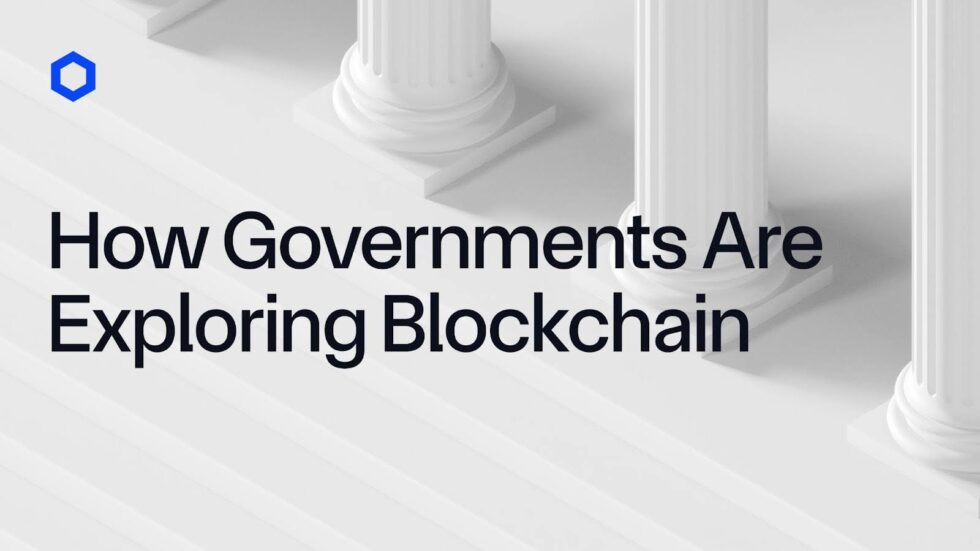
For years, blockchain was synonymous with Bitcoin and cryptocurrencies. But as the technology matured, governments across the world began to realize its potential beyond digital money. From public record-keeping and taxation to digital identity and voting, blockchain is emerging as a cornerstone for digital transformation in governance.
In an era where trust in institutions is often fragile, blockchain offers something governments desperately need—transparency, security, and efficiency. The shift is not just about adopting a new technology; it’s about reimagining how states interact with citizens, businesses, and even other governments.
Why Blockchain Appeals to Governments
At its core, blockchain provides a decentralized, tamper-proof ledger. This ensures that records cannot be altered without leaving a trace. For governments, this is particularly attractive in areas plagued by inefficiencies, corruption, and lack of accountability.
Here are the key drivers behind government interest in blockchain:
- Transparency and Trust
Blockchain provides a shared record of transactions, reducing opportunities for corruption. Whether it’s managing land titles or distributing social welfare, blockchain can create verifiable and auditable trails. - Efficiency and Cost Reduction
By eliminating intermediaries, governments can streamline bureaucratic processes. For instance, a smart contract could automate tax collection or welfare disbursement, reducing administrative costs. - Data Security
Cybersecurity threats are growing. Blockchain’s cryptographic foundations make sensitive data, such as health or identity records, more secure against tampering and unauthorized access. - Financial Innovation
Central Bank Digital Currencies (CBDCs), powered by blockchain-inspired technology, allow governments to modernize monetary systems, improve payment efficiency, and enhance financial inclusion.
Real-World Government Blockchain Initiatives
Governments are not just theorizing about blockchain—they’re testing and implementing it.
1. Central Bank Digital Currencies (CBDCs)
Perhaps the most significant blockchain-inspired project is the rise of CBDCs.
- China’s Digital Yuan is the most advanced, already being piloted in multiple cities and even used at major international events.
- Nigeria’s eNaira became Africa’s first CBDC in 2021, aimed at boosting financial inclusion and reducing reliance on cash.
- European Union and U.S. are exploring digital euro and digital dollar projects, signaling mainstream adoption.
2. Land Registries
Land ownership disputes are a major issue in many regions. Governments in Ghana, Rwanda, and Georgia are experimenting with blockchain-based registries to create tamper-proof records, ensuring citizens can prove rightful ownership.
3. Digital Identity
Estonia is a global leader in digital governance. Its e-Residency program and blockchain-backed identity systems allow citizens to securely access public services online. Other nations, like India, are also exploring blockchain to enhance national identity systems.
4. Voting Systems
Blockchain’s immutability makes it a candidate for secure digital voting. Governments in countries like South Korea and Sierra Leone have piloted blockchain-based voting systems to ensure transparent, tamper-proof elections.
5. Public Procurement and Supply Chains
Governments spend billions on procurement, an area often rife with corruption. Blockchain can track contracts, bids, and deliveries transparently. For example, the Colombian government has tested blockchain to improve the integrity of public procurement processes.
Opportunities for Africa
Africa, with its unique challenges and opportunities, stands to benefit enormously from blockchain-powered governance.
- Fighting Corruption: Transparency is one of blockchain’s strongest features, making it a powerful tool in combating corruption—a challenge that has hindered governance in many African nations.
- Land and Property Rights: Blockchain registries can reduce disputes and protect citizens from fraudulent land grabs.
- Financial Inclusion: With CBDCs like Nigeria’s eNaira, blockchain can bring millions of unbanked citizens into the formal economy.
- Cross-Border Trade: The African Continental Free Trade Area (AfCFTA) could leverage blockchain to simplify customs, reduce fraud, and improve trust in trade agreements.
- Identity and Social Services: Blockchain-based IDs could help citizens without traditional documentation access education, healthcare, and financial services.
Challenges Governments Face
Despite the promise, blockchain adoption in governance is not without hurdles:
- Regulatory Uncertainty – Many governments are still figuring out how to regulate blockchain technology while fostering innovation.
- Technical Complexity – Integrating blockchain with legacy systems requires significant investment and expertise.
- Scalability Issues – National-scale blockchain systems must handle massive volumes of data without slowing down.
- Privacy Concerns – While transparency is a benefit, balancing it with citizens’ privacy rights is critical.
- Political Will – Successful blockchain adoption requires governments to embrace openness, which can be politically sensitive in systems where opacity benefits elites.
The Future of Blockchain in Governance
The next decade will likely see a rapid acceleration of blockchain adoption in the public sector. Some emerging trends include:
- CBDCs Going Mainstream: As more central banks launch digital currencies, CBDCs will reshape global finance and payments.
- Smart Cities: Blockchain will underpin data-sharing in smart cities, from traffic management to utility billing.
- Cross-Border Governance: International organizations like the UN and World Bank are exploring blockchain for aid distribution and refugee identity verification.
- AI and Blockchain Integration: Combining blockchain with artificial intelligence could help governments predict fraud, optimize resources, and improve service delivery.
Conclusion: Trust in Code, Trust in Governance
Governments worldwide are recognizing blockchain not just as a tool for finance, but as a framework for digital transformation. From CBDCs and land registries to digital identities and voting systems, blockchain holds the power to rebuild trust between citizens and institutions.
For Africa, the opportunities are particularly significant. Blockchain can help leapfrog outdated systems, tackling long-standing issues like corruption, lack of identity, and limited financial inclusion.
Yet, the road ahead requires vision, investment, and political will. Governments must balance innovation with responsibility, ensuring blockchain empowers citizens rather than centralizing control.
In a world where trust is increasingly fragile, blockchain offers a bold promise: governance built not on bureaucracy, but on transparency, security, and shared accountability. The question is not whether governments will adopt blockchain—but how fast, and how far, they’re willing to go.









